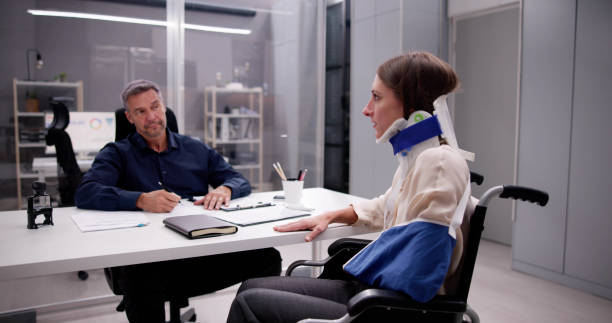While personal injury lawyers often experience lulls inactivity, they are always busy pulling evidence, assembling medical records, and filing lawsuits. Their schedules are tailored to the claim they are handling, and the specific injuries suffered. The activities of these lawyers vary, as they are trained to tailor their activities to each case. While their work is often demanding, they also get paid in damages, which are often substantial. There are three basic types of damages in personal injury cases.
Depending on the type of personal injury case, a personal injury lawyer may choose to concentrate their efforts on a single kind of litigation. In this way, they become very knowledgeable about the specific types of cases they handle. In addition to this, some lawyers focus on a single area of litigation to gain more experience and knowledge. In the latter case, an injury lawyer can specialize in a particular area of law, including product liability, medical malpractice, wrongful death, and workplace injuries.
A personal injury lawyer may file a complaint against the defendant to seek compensation for damages and other losses caused by accident. The complaint must state all the legal arguments for the claim and how much money the victim has lost. The defendant has 30 days to respond to the lawsuit. If there is no response from the defendant, the plaintiff’s lawyer may begin discovery processes. These can include deposing witnesses, experts, and parties to the accident.
The next step in the process is negotiating with the defendant. A personal injury attorney will collect as much of the judgment as possible. This may involve contacting the defendant’s insurance company, filing post-trial motions, and filing for a default judgment. The final step is settling or agreeing to a settlement with the defendant. In return, the victim will be asked to sign a release form, pledging that they will not pursue the case against the defendant.
Personal injury cases are common in the legal system. A personal injury lawyer may file a complaint on behalf of a client. A plaintiff’s lawyer will present their legal arguments and how much they are seeking in damages. The defendant has 30 days to respond to the complaint. If the plaintiff’s lawyer is unsuccessful, the case will go to court. If the defendant refuses to pay, a personal damage lawsuit can be filed against them.
A personal injury attorney will fight to get compensation for their clients. Typically, this compensation is based on the victim’s actual losses. A personal injury attorney will help a person recover all of the damages caused by an accident. These damages can include medical bills, lost wages, and pain. A personal injury case can also include emotional trauma and loss of companionship. It is essential to hire an experienced attorney when hiring a lawyer.
A personal injury attorney will help a plaintiff file a lawsuit. This lawsuit aims to get compensation for personal injuries. The victim may have suffered a severe physical injury, lost wages, or other property damage. There may be long-term emotional trauma from the accident. A personal injury case can be complicated, so it is best to hire a lawyer who has experience in handling these types of cases. It’s essential to retain an attorney who is well-versed in the law, as these attorneys are the best ones to represent you.
If you are the victim of an accident, you can receive compensation from the partially or responsible party. For example, if you were a pedestrian hit by a car, you can obtain up to 75% of the damages. Comparative fault can be an issue in these cases, and an attorney can help you resolve these issues. If a driver is at fault for the accident, the insurance company can refuse to pay.
A personal injury attorney can help you get compensation for medical expenses and loss of income. They can also file post-trial motions to collect a judgment for you. A personal injury attorney can help you with your case and ensure that you are entitled to all of the money you deserve. You will also be able to seek compensation from the other party if they are partially responsible for the accident. If the other party is at fault, you can get a bonus from them through the insurance company.

Leave a Reply